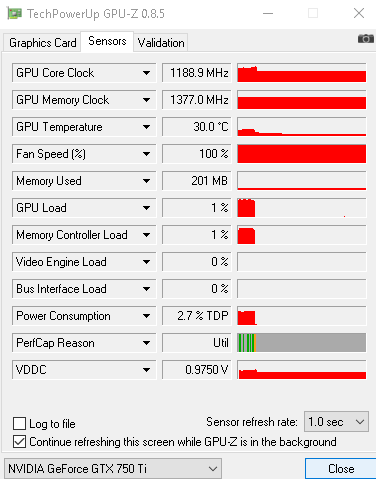
You do it in baby steps, u increase the core clock up by little and little and little till it does not work, then u bring it down like 5 littles and try a burn in "littles being like 1-5mhz or 0.01-0.1 volts", watch the temps and the burn in images for errors, usally ghrey blocks / green lines etc. So conclusion is only overclocking voltage and temp can damage a gpu? due to temp? The motherboard shuts down to prevent damage? As far as I am aware there is no temerature given for RAM.Īnything you overclock has no protection from burning out or frying. The Motherboard may shut everything down if the CPU/GPU/CASE temps get to high. Originally posted by Nelob:interesting what about core clock/memory it protects itself also? No it does not protect it's self. This is useful, however, if the core speed and ram speed are required to be the same. This, however, results in the RAM going the same speed or possibly slower. Slowing down the ram timings can allow you to increase the bus speed. On some cards you may be able to adjust the RAM timings. I am not sure if they report overheat, but you would do better using a separate utility for that anyways, so you can get a nice chart of temprature during the test. What is nice about the AMD utilities is they will report if the safety mechanisms kick in, as well as if you get general errors. I'm not sure if the Windows version includes better instructions or a GUI interface. You can use a benchmark or some other stress-test utility to induce stress on the card until the heat stablizes to determine the heat being produced, and if it is functioning properly.ĪMD ships a stress utility with their drivers, however it's documentation is very minimal, at least for the Linux version (atiode). Transistor response time can be improved by increasing chip voltage, but this has the nasty side effect of increasing temprature. Both of these will result in data corruption and visual artifacts, so the only way to tell them apart is if the chip is too hot. There are two issues you run into on video cards: Heat and transistor response time. Your best bet is to make sure you have something to monitor heat, and overclock a little at a time until you find what your chip is capable of. While newer cards have safety mechanisms to reduce the risk, those safety mechanisms can and DO FAIL


Yes, you can fry your hardware permanantly.


 0 kommentar(er)
0 kommentar(er)
